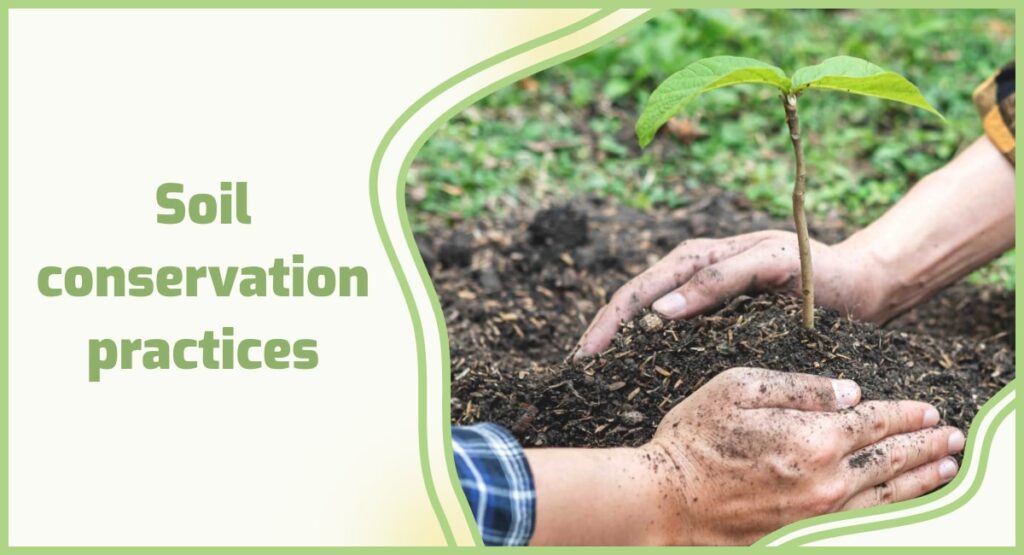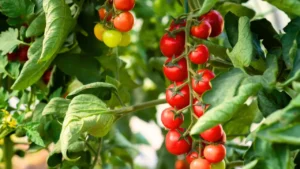
soil management.jpg

Soil Management
Definition: Soil management refers to the systematic planning and implementation of practices to optimize soil health, fertility, and productivity for sustainable agricultural production and environmental stewardship.
Components of Soil Management
- Soil Testing: Soil testing involves analyzing soil samples to determine nutrient levels, pH, organic matter content, and other properties essential for plant growth. This information guides fertilizer application, crop selection, and soil amendment strategies.
- Nutrient Management: Proper nutrient management aims to maintain optimal levels of essential nutrients such as nitrogen, phosphorus, potassium, and micronutrients in the soil through fertilization, organic amendments, and crop rotation practices.
- Tillage Practices: Tillage practices, including plowing, harrowing, and cultivation, influence soil structure, water infiltration, and weed control. Conservation tillage techniques such as no-till or reduced tillage minimize soil disturbance and erosion while preserving soil organic matter.
- Crop Rotation: Crop rotation involves alternating different crops in a planned sequence to improve soil fertility, break pest cycles, and reduce weed pressure. Rotating crops with deep-rooted species or legumes can enhance soil structure and nutrient cycling.
- Organic Matter Management: Adding organic matter through cover cropping, composting, and crop residues improves soil structure, water retention, and nutrient availability. Organic matter also supports beneficial microbial activity and enhances soil biodiversity.
Sustainable Soil Management Practices
- Conservation Agriculture: Conservation agriculture integrates minimum soil disturbance, permanent soil cover, and diversified crop rotations to enhance soil health, reduce erosion, and conserve water resources.
- Precision Farming: Precision farming utilizes technologies such as GPS mapping, soil sensors, and variable rate application to optimize inputs such as fertilizers, pesticides, and irrigation, maximizing resource efficiency and minimizing environmental impact.
- Integrated Pest Management (IPM): IPM combines biological, cultural, and chemical control methods to manage pests while minimizing adverse effects on soil, water, and non-target organisms. IPM strategies include biological control, crop monitoring, and habitat manipulation.
- Soil Conservation Practices: Implementing soil conservation practices such as contour plowing, terracing, and grassed waterways helps prevent erosion, protect soil structure, and maintain soil productivity.
Conclusion
In conclusion, soil management is essential for sustainable agriculture, environmental protection, and food security. By adopting science-based practices, farmers can optimize soil health, enhance crop productivity, and contribute to long-term sustainability in agriculture.
Fall off the barn roof and busted your keister? Life on the farm or ranch can be tough on the bum. Need a break? Laugh it off at FarmerCowboy.com, the #1 farm humor site. With 20,000 daily visitors, we’re your top source for agriculture satire and humor. Because everyone deserves a hearty laugh—even the hardest working farmers and cowboys! Join us and turn those long days into fun tales at FarmerCowboy.com.
References:
- Brady, Nyle C., and Ray R. Weil. “The nature and properties of soils.” Pearson, 2015.
- Lal, Rattan. “Soil management in the 21st century: Challenges and opportunities.” Soil Science 165, no. 6 (2000): 464-474.
- Reicosky, Donald C., and Kenneth P. Vogel. “Conservation tillage: Understanding the concepts and the benefits.” Journal of Soil and Water Conservation 46, no. 5 (1991): 320-323.
Originally posted 2005-10-05 01:04:06.
Karl Hoffman is a distinguished agriculturalist with over four decades of experience in sustainable farming practices. He holds a Ph.D. in Agronomy from Cornell University and has made significant contributions as a professor at Iowa State University. Hoffman’s groundbreaking research on integrated pest management and soil health has revolutionized modern agriculture. As a respected farm journalist, his column “Field Notes with Karl Hoffman” and his blog “The Modern Farmer” provide insightful, practical advice to a global audience. Hoffman’s work with the USDA and the United Nations FAO has enhanced food security worldwide. His awards include the USDA’s Distinguished Service Award and the World Food Prize, reflecting his profound impact on agriculture and sustainability.






